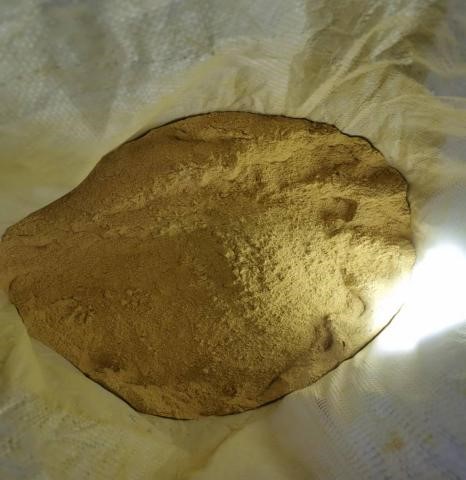



Essential Chemicals for Efficient Cooling Tower Water Treatment and Maintenance
Understanding Cooling Tower Water Chemicals Their Importance and Management
Cooling towers are crucial components in many industrial and commercial processes, serving to remove excess heat from systems. Water is the primary medium used for heat transfer, but as it circulates through the cooling tower, it can pick up contaminants, leading to a range of operational issues. To maintain efficiency and prolong the lifespan of cooling towers, various chemicals are employed in the water treatment process. This article will explore the essential cooling tower water chemicals and their roles in ensuring optimal operation.
Importance of Water Treatment in Cooling Towers
The primary role of water treatment in cooling towers is to maintain water quality by controlling the scale, corrosion, and microbial growth. Poor water quality can lead to a variety of problems, including
1. Scale Formation Minerals such as calcium and magnesium can precipitate and form scale on heat exchange surfaces, reducing efficiency and potentially causing overheating. 2. Corrosion Oxygen and other corrosive agents can lead to the deterioration of metal components, resulting in leaks and system failures. 3. Microbial Growth Algae, bacteria, and other microorganisms can proliferate in cooling water, leading to biofouling. This not only reduces heat transfer efficiency but can also introduce health risks, particularly from pathogens like Legionella.
Given these risks, the proper use of chemicals becomes vital in maintaining a healthy cooling tower system.
Common Chemicals Used in Cooling Towers
1. Biocides These chemicals are essential for controlling microbial growth. Common biocides include chlorine, bromine, and non-oxidizing biocides. Chlorine is effective but requires careful monitoring due to its potential to create harmful byproducts. Many facilities opt for less aggressive non-oxidizing biocides to minimize environmental impacts.
2. Scale Inhibitors To prevent scale formation, scale inhibitors are added to cooling tower water. These chemicals help keep dissolved minerals in solution, thereby reducing the likelihood of precipitate formation. Phosphonates and polyacrylate-based products are popular choices.
3. Corrosion Inhibitors Protecting the metal surfaces from corrosion is vital. Corrosion inhibitors such as zinc and molybdate compounds form a protective film on metal surfaces, reducing the interaction with corrosive agents like dissolved oxygen. The type of inhibitor used often depends on the specific metallurgy of the cooling system.
cooling tower water chemicals

4. pH Adjusters The pH level of cooling water is critical for overall chemistry balance. Chemicals such as caustic soda (sodium hydroxide) or sulfuric acid are used to adjust the pH to an optimal range, usually between 6.5 and 8.5. Proper pH levels not only help in controlling scale and corrosion but also enhance the effectiveness of other chemicals, particularly biocides.
5. Dispersants When suspended solids are present in cooling water, dispersants can help keep these particles from settling and forming deposits. These chemicals work by reducing the surface tension between water and solids, ensuring better water flow and reducing wear on mechanical components.
Managing Chemical Use
The effective management of cooling tower water chemicals involves several best practices
- Regular Testing Routine testing of water chemistry is essential to monitor levels of pH, hardness, conductivity, and microbial presence. Regular testing ensures that chemical dosing can be adjusted to meet changing conditions.
- Automated Dosing Systems Using automated chemical dosing systems can help maintain optimal water chemistry by automatically adjusting chemical feed based on real-time measurements, reducing the risk of human error.
- Training and Safety Protocols Personnel handling chemicals should be adequately trained in safety protocols to minimize risks associated with chemical handling and application.
- Environmental Considerations Operators must be mindful of the environmental impact of the chemicals used. Choosing less harmful alternatives and ensuring proper disposal of waste chemicals are crucial for compliance with environmental regulations.
Conclusion
In conclusion, the effective management of cooling tower water chemicals is essential for maintaining system efficiency and longevity. By understanding the roles of various chemicals, operators can implement effective water treatment strategies that mitigate risks related to scale, corrosion, and microbial growth. Continuous monitoring and appropriate management practices will ensure that cooling towers operate efficiently, thereby enhancing overall system performance and reliability.
-
Why Strontium Carbonate Still MattersNewsJun.06,2025
-
Why BaSO4 MattersNewsJun.06,2025
-
Why Barium Carbonate Still MattersNewsJun.06,2025
-
Strontium Hydroxide: A Versatile Compound for Modern ApplicationsNewsJun.06,2025
-
Strontium Chloride in Daily IndustryNewsJun.06,2025
-
Pure Potassium Nitrate for SaleNewsJun.06,2025
-
What Is Sodium Bisulfate Used For?NewsMay.15,2025










